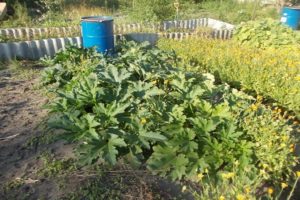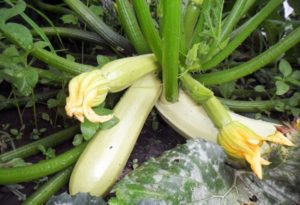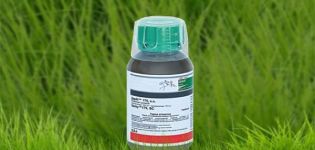Why do zucchini ovaries fall and turn yellow, what to do
Growing zucchini almost every vegetable lover is engaged in his summer cottage. Experienced summer residents do not have any problems with growing this crop. However, beginners often have problems, and they do not know why zucchini ovaries fall off.
So that the zucchini does not wither and its ovaries do not fall off, you should familiarize yourself in advance with the peculiarities of growing this plant.
It all starts with following the landing rules
Many gardeners are wondering what needs to be done so that the zucchini does not turn yellow. The first thing to do is to familiarize yourself with the basic rules for planting and growing this vegetable crop.
It is recommended to plant seed in open ground in the first half of May, so that the soil is already well warmed up. For planting, a site with soil is selected, which contains an increased level of humus and a slight acidity. Before proceeding with planting, the site is dug up and fertilizers are added to the soil.
Sawdust, humus, sod land and peat are added to the soil mixture. You can also add some ash or chalk to reduce acidity. After preparation, holes are made on the site with a depth of about 5–6 cm, into which zucchini seeds are placed. When all the seed is planted, the soil is watered.
So that the zucchini does not turn yellow and their ovaries do not fall off, the planted plants will have to be properly looked after. Care consists in timely moistening, loosening and fertilizing the soil.
Reasons for the fall of the ovary of zucchini
Often from gardeners you can hear that the ovaries of zucchini wither and dry, due to which the plant's yield deteriorates. Many people believe that this problem occurs due to disease or exposure to harmful insects. However, this is not always the real reason for the yellowing of the leaves.
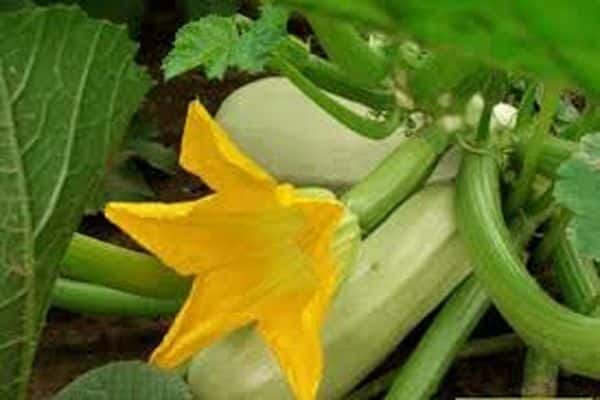
It's no secret that the growing season is different for all plants. In squash bushes, this period is several months. During this time, the first leaves begin to age on the zucchini bushes, which is why they turn yellow and fall off.
Health problems of squash bushes often appear if a set of agrotechnical measures for plant care was not followed during flowering. This leads to problems with pollination, lack or excess of nutrients, powdery mildew infection.
Excess moisture and nutrients
The fall of the ovary of zucchini and the rotting of the bushes often begins due to waterlogged soil. The reasons for excess moisture in the soil include too frequent watering or regular rains.To maintain a normal level of soil moisture, you should familiarize yourself with the features of watering this vegetable crop:
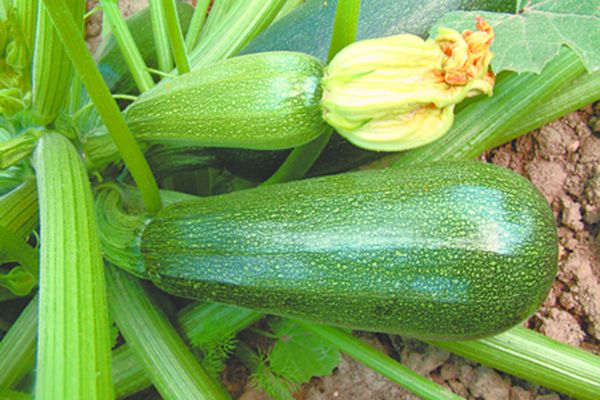
- watering is recommended no more than once a month, since squash bushes do not like moisture;
- when watering, about 15 liters of warm water are consumed for each plant;
- water should be poured not from above, but under the root, so as not to hurt the stem or leaves;
- you should not water the bushes with a strong pressure of water, as this will wash out the root system and the plant will wither;
- it is not necessary to periodically spray the leaves or fruits with water, since the culture does not need this.
To reduce soil moisture during heavy rainfall, it is recommended:
- regularly loosen the soil on the site so that air can better penetrate it;
- do not remove weeds so that they absorb excess moisture.
Many people are surprised, because of what zucchini bushes wither in the soil with a lot of nutrients. This happens due to the fact that in such a soil the plants continuously increase their green mass and, after a strong growth, they gradually wither. Therefore, it is undesirable to frequently feed with organic or mineral fertilizers.
However, plants do not always wither from an excess of fertilizers. Sometimes zucchini dry out due to a lack of nutrients, namely boron. In this case, it is recommended to feed with a boron solution prepared from 10 liters of water and a gram of the substance.
The problem lies in the flower
After the first ovaries appear, it is recommended to get rid of all flowers on the bushes. If this is not done, all zucchini ovaries immediately fall off and the plant will not bear fruit. This happens due to the fact that moisture accumulates in each flower, due to which the process of decay begins.
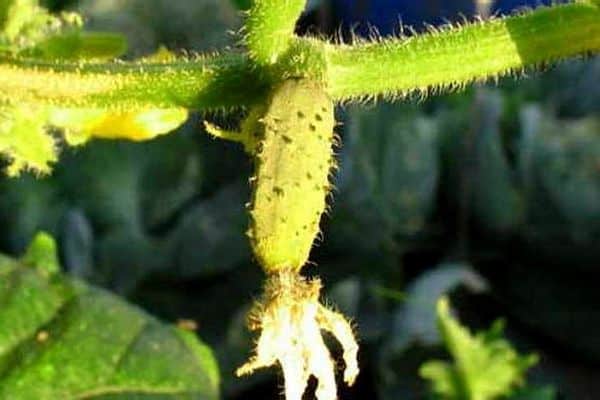
After all the male and female flowers have been plucked, the place where the flower grew is treated with ash. This is done to disinfect and prevent future fruit from rotting.
Also, problems with squash bushes appear due to non-pollinated female plants. In this case, you will have to do the pollination of the bushes yourself. To do this, a male flower with ripe pollen is torn from any bush. To test her maturity, make sure she is fluffy. When a plant is pollinated, the female ovary is gently applied to the male flower.
So that in the future there are no problems with pollination, all flowering plants are treated with a solution to attract bumblebees or bees.
Powdery mildew infection
Powdery mildew is a common reason why zucchini ovaries fall off outdoors. This fungal disease develops at a high level of humidity and therefore most often zucchini becomes infected with it during the period of frequent rains.
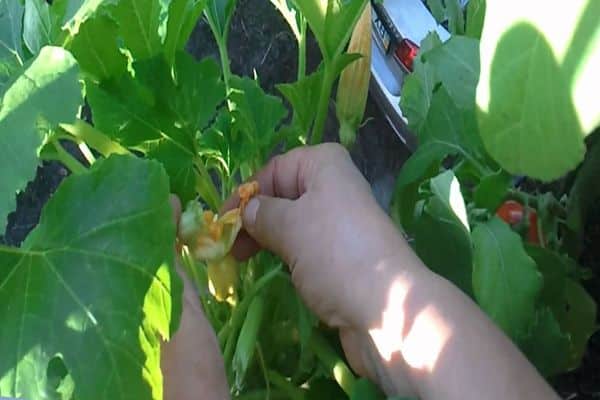
Powdery mildew affects the leaves and stems of bushes, which is why white spots appear on their surface. First, a white bloom appears on the lower leaves and eventually spreads to the upper ones. The main reasons for the appearance and development of the disease include:
- a large amount of nitrogen in the soil;
- high level of humidity;
- too close arrangement of bushes to each other;
- improper watering of the bushes.
To get rid of the disease, you should use a soap and soda solution, which will restore the squash bushes. To prepare a medicinal mixture, you can dissolve a teaspoon of soda with 5 grams of soap and two liters of heated water. The prepared solution is used for spraying plants.
What to do?
To preserve the zucchini, you should figure out what to do when the ovaries turn yellow. To preserve plants and get a good harvest, we recommend:
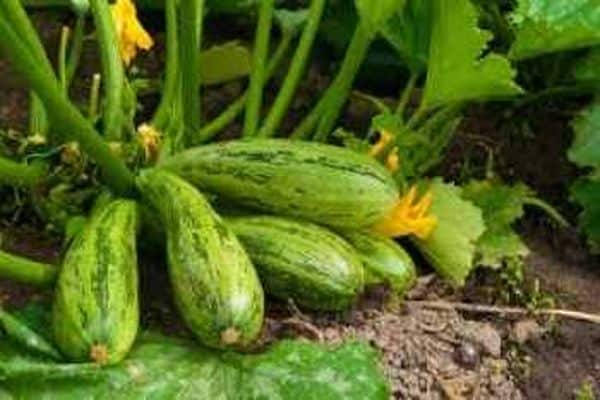
- Before planting the planting material, feed the soil with inorganic or organic fertilizers. For this, wood ash, peat and sod land are suitable.
- Step by step, after planting the zucchini, feed with a complex of fertilizers 2 times.The first time fertilizers are added to the soil after the formation of the first leaves. The next feeding is carried out after the appearance of flower buds.
- Moisten the soil regularly so that the soil does not dry out too much.
- In dry weather, mulch the soil in the root zone of the squash bushes.
Having figured out what to do when growing zucchini, their ovaries will not disappear or dry out.
Conclusion
Vegetable growers often plant squash in their vegetable gardens. So that when growing this vegetable crop there are no problems with yellowed leaves, it is recommended that you familiarize yourself with the reasons for the drying of the plant and how to eliminate this problem.
